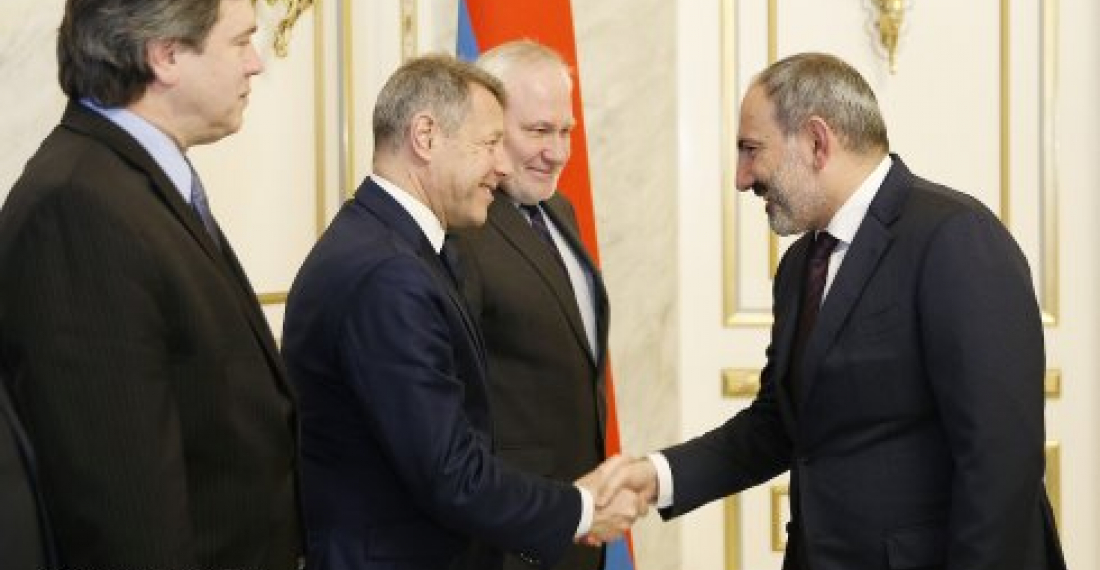Armenian Prime Minister Nikol Pashinyan on Wednesday met in yerevan with the OSCE Minsk Group Co-Chairs Igor Popov (Russia), Andrew Shoffer (USA), Stefan Visconti (France) and Personal Representative of the OSCE Chairman-in-Office Andrzej Kasprzyk.
According to the official website of the Armenian government Nikol Pashinyan welcomed the visit of the OSCE Minsk Group Co-chairs to Armenia and attached importance to their role as the format of negotiations on the Nagorno Karabakh conflict settlement.
The OSCE Minsk Group Co-Chairs congratulated Nikol Pashinyan on the victory of the "My Step" alliance in the parliamentary elections.
The prime minister presented the details of the informal meeting he had with Azerbaijani president Ilham Aliyev in Davos in January.
According to the website "the interlocutors exchanged thoughts over the formation of an appropriate atmosphere of the Nagorno-Karabakh conflict settlement process, outlining further steps. The implementation of the agreements on the maintenance of the ceasefire was emphasized."
source: commonspace.eu with www.primeminister.am
photo: Armenian prime minister Nikol Pashinyan met the co-chair of the OSCE Minsk process in Yerevan on 20 February 2019 (picture courtesy of the ress service of the government of Armenia)






